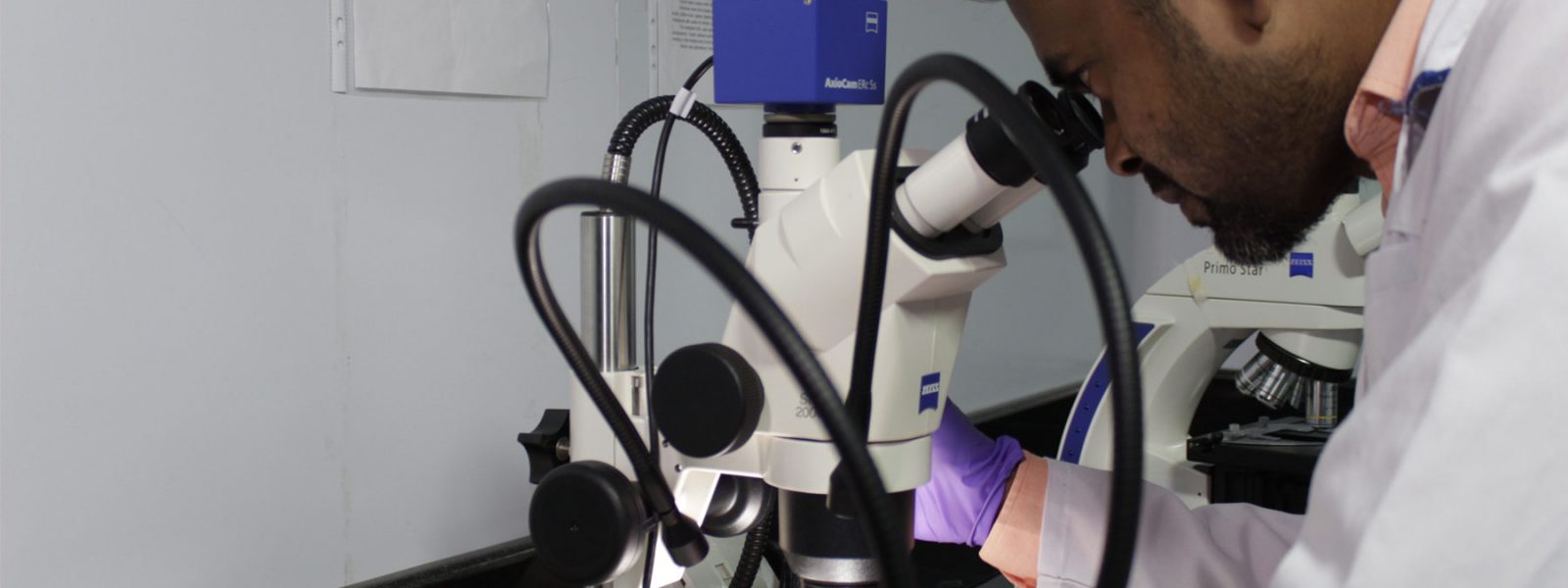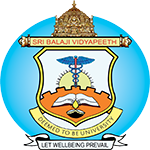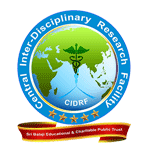
EXTRA-MURAL PROJECTS
EXTRAMURAL Research Projects Government funding
Repurposing Drugs Potentiates Anti – Glioblastoma Efficacy of Temozolomide in A Preclinical Orthotopic Xenograft Animal Model
PI: Dr. Anitha T.S.
Funding Agency: Indian Council of Medical Research (ICMR)
Amount: Rs. 42.72 Lakhs
Duration: 3 years
Status: Ongoing
Expected Outcome: This study will generate knowledge on the combined anti-proliferative activity of approved drugs such as chloroquine, naringenin, phloroglucinol, and temozolomide on Glioblastoma Multiforme (GBM) in a preclinical orthotopic animal model. The potential therapeutic utility of these drugs by targeting WNT signaling for GBM treatment would be explored. The combination of drugs can further be explored for their actual innocuousness in humans and actual therapeutic value in phase 1 clinical studies
Lipidomic Study to identify potential platelet lipids as biomarkers for the early prediction of severe dengue and to assess the role of lipids in platelet dysfunction and dengue pathogenesis
PI: Dr. Agieshkumar B.
Funding Agency: Council of Scientific and Industrial Research (CSIR)
Amount: Rs. 23.00 Lakhs
Duration: 3 years
Status: Ongoing
Expected Outcome: A set of lipid-based bio-markers that predict the severe form of dengue from non-severe form may be identified. The study may provide some insights on the role of platelet lipids and dengue disease pathogenesis.
EXTRAMURAL Research Projects Non-Government funding
Development of antimicrobial nanocomposites with anti-infective property using hospital generated plastic and glass biomedical waste materials
PI: Dr. Balanehru Subramanian
Funding Agency: Sri Balaji Educational and Charitable Public Trust
Amount: Rs. 59.70 Lakhs
Duration: 3 years
Status: Ongoing
Expected Outcome: An antimicrobial nanocomposite with anti-infective properties using hospital waste will be developed.
Nano-formulations of metal-based anticancer drugs for effective drug delivery and efficacy
PI: Dr. Balanehru Subramanian
Funding Agency: Sri Balaji Educational and Charitable Public Trust
Amount: Rs. 40.30 Lakhs
Duration: 3 years
Status: Ongoing
Expected Outcome: A metal based anti-cancer drugs based on principles practiced in Ayurvedha and Sidha will be developed.
Development of Artificial Intelligence based platform for the early detection of congenital hypothyroidism by ultrasound imaging
PI: Dr. Balanehru Subramanian
Funding Agency: Madras Medical Mission
Amount: Rs. 80.70 Lakhs
Duration: 3 years
Status: Ongoing
Expected Outcome: AI based platform for the early detection of Congenital hypothyroidism in new born will be developed.
Establishment of an algorithm-assisted pattern analysis of behavioural changes during progression of fungal pathogenesis in animal models
PI: Dr. Balanehru Subramanian
Funding Agency: Madras Medical Mission
Amount: Rs. 75.05 Lakhs
Duration: 3 years
Status: Ongoing
Expected Outcome: The algorithm based AI platform will be developed and validated in animal models to study the fungal disease progression.
Formulation, design, development and validation of a denture based micronutrient delivery system for use in edentulous patients
PI: Dr. Balanehru Subramanian
Funding Agency: Madras Medical Mission
Amount: Rs. 86.30 Lakhs
Duration: 3 years
Status: Ongoing
Expected Outcome: A denture precoated with a sustained release nanoparticle formulation of micronutrient will be developed to use in elderly edentulous patients.
Role of selected Bradykinins, micro RNA modulating Bradykinin storm and circulating ACE2 as biomarkers in predicting disease outcome in COVID-19 patients using Machine learning Models.
PI: Dr. Agieshkumar B.
Funding Agency: Sri Balaji Educational and Charitable Public Trust
Amount: Rs. 10.85 Lakhs
Duration: 1 year
Status: Ongoing
Expected Outcome: A set of bradykinin markers and microRNA that are involved in bradykinin storm during the course of SARS-CoV-2 infected may be identified. Also, identified markers/microRNAs can serve as a prognostic markers for the early prediction of COVID-19 disease outcome.
SMALL ANIMAL RESEARCH FACILITY FOR PRE-CLINICAL STUDIES AND SERVICES (ONGOING)
PI: Dr. Balanehru Subramanian
Funding agency: DBT, Government of India, 2016
Amount: Rs.4.39 crores
Duration: 3 Years
Status: Ongoing
Expected Outcome: The established facility will be engaged in preclinical research; services dedicated for safety assessment, toxicology and development of medical therapeutics and devices. CAReTS will serve the R & D needs of researchers in both public and private sectors in and around Pondicherry as well as Central and Southern Tamilnadu, India. The facility additionally provides medium to high skill development courses for qualified low-skilled technical manpower, improved quality of medical/surgical education, and increase employment opportunities in this region of the country
TO STUDY THE TRANSCRIPTIONAL CONTROL OF CD147 EXPRESSION IN GLIOBLASTOMAS THROUGH CELL LINES
PI: Dr. Pooja Pratheesh
Funding agency: DBT, Government of Puducherry, 2015
Amount: Rs. 24.15 lakhs
Duration: 3 Years
Status: Ongoing
Expected Outcome: Role of CD147 in modulating glioma was studied in vitro. The results from this study were published in Gene Reports and The New Journal of Chemistry., The results were presented in two international conferences. One PhD degree has resulted from this study.
A PILOT PRE-CLINICAL STUDY ON NANOMEDICINE BASED PROTEIN REPLACEMENT THERAPY FOR RETINOSCHISIS, AN INHERITED RETINAL DEGENERATIVE DISEASE
PI: Dr. Jayamuruga Pandian A
Funding agency: DST-SERB, Government of India , 2018
Amount: Rs. 45.18 lakhs
Duration: 3 Years
Status: Ongoing
Expected Outcome: X-linked retinoschisis (XLRS) is an inherited human retinal disorder caused by mutations in RS1 gene leading to splitting (schisis) of neurosensory retinal layers which impairs visual signal processing. Defective retinoschisin protein or its loss may impair adhesion of the retinal layers, creating schisis cavities bringing about an abnormal “electronegative” scotopic electroretinogram (ERG). The disease prevalence is 1 in 5000 to 25000 worldwide. There is no treatment for this disease to suppress the natural progression of schisis formation in patients. Recombinant retinoschisin protein therapeutics could offer effective treatment for this degenerative disease. Therefore, this project intends to perform a protein replacement therapy using sustained nano-particulate encapsulated drug delivery approach.
SCREENING AND CHARACTERIZATION OF POTENTIAL LARVICIDAL AGENTS FROM MARINE PLANTS AGAINST DENGUE VECTOR MOSQUITO AEDES AEGYPTI
PI: Dr. Agiesh Kumar B
Funding agency: Puducherry Council for Science and Technology, Government of Puducherry, 2016
Amount: Rs. 55,000
Duration: 1 Year
Status: Completed
Outcome: The chance of mosquitoes developing resistance towards plant and other metabolites from marine seaweeds are very little as plant derived insecticides comprise a cocktail of compounds which may have a synergestic action on killing mosquitoes unlike conventional insecticides which are based on a single active ingredient. Since the marine plants consists of various bioactive compounds than terrestrial plants, recent studies have emphasized the importance of seaweed metabolites in controlling insects, this project screened some of the selected marine Brown and green seaweeds for their anti-mosquito activity. The study found Sargassam sp and Ulva Sp exhibited larvicidal action against Ae. aegypti.
ROLE OF OXIDATIVE STRESS IN TRIGGERING CATARACTOGENESIS- A CASE CONTROL STUDY IN PUDUCHERRY POPULATION
PI: Dr. Anitha T.S
Funding agency: Department of Science, Technology & Environment, Government of Puducherry, 2016
Amount: Rs. 60,000
Duration: 1 Year
Status: Completed
Outcome: Oxidative stress, caused due to the accumulation of free radicals, plays an important role in the pathogenesis of cataracts and this process can be prevented or ameliorated by antioxidants. In the present study, the pro-oxidant i.e. serum malondialdehyde (MDA) levels were found to be elevated in the cataract patients, while the serum levels of enzymatic anti-oxidants, SOD, CAT and GPX were decreased. Thus, the present study confirms that oxidative stress, is involved in the development of cataract, and that augmentation of the antioxidant defenses may be helpful to prevent or delay cataractogenesis.
PLATELET ASSOCIATED MOLECULAR TARGETS FOR INFLAMMATION, VASCULAR INTEGRITY, THROMBOCYTOPENIA AND DISEASE SEVERITY IN DENGUE INFECTION
PI: Dr. Agiesh Kumar B
Funding agency: DBT, Government of India, 2015
Amount: Rs. 6.15 lakhs
Duration: 3 Years
Status: Completed
Outcome: Dengue has begun to emerge out of the list of neglected diseases in recent years due to its potential spread beyond the tropical world. Currently, there are no useful diagnostic tests, drug or vaccine to fight the dengue disease. This project in collaboration with JIPMER determined the differential expression of different platelet CD markers and severe and non-severe forms of dengue and their association with thrombocytopenia and disease severity. Based on the findings a research paper has been published in Plos One and results are presented in 13thConf on vectors and vector borne disease organized by CUTN and NAVBD.
CIDRF acknowledges the support for various extramural research grants from the following funding agencies
DBT, Govt of India
ICMR, Govt of India
DST, SERB, Govt of India
DSTE, Govt of Puducherry
PCST, Govt of Puducherry
SBV, Puducherry (Intra-Mural)


